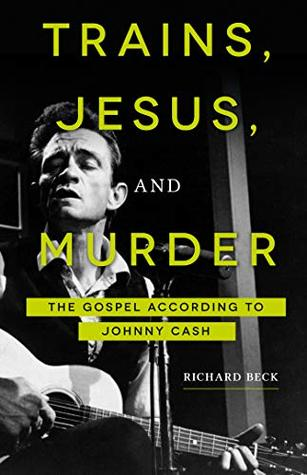I’m not sure what I was expecting from this book. I think I was, in part, expecting neat little quotes about spirituality and Johnny Cash that could be distilled into bite-sized memes and encourage and impress my friends. This book is a lot deeper than that.
Can it be read devotionally? Absolutely. Should it? I’m not sure.
But if the gospel according to Johnny Cash is anything, it’s really not about our ability to walk the line. The gospel isn’t about our faithfulness to God; it’s about God’s faithfulness to us. Johnny Cash couldn’t walk the line. Nor can you or I or anyone else. God walks the line for us.
Page 22
The Man in Black
It’s not just about Cash’s music or metaphysics. It’s about how he spoke about and into the culture. Each chapter takes its beat from one of Johnny’s songs but then speaks to the broader world into which the song was written. Then, when combined with Beck’s own experiences with both psychology and prison ministry, there’s plenty to apply to our hearts and the hearts of those around us.
I found myself laughing in spots and crying in others—Cash’s music does that to me also. Beck wisely takes us chronologically through the Man in Black’s life, which led me to mourn him all over again.
The economy of love is paid in tears. Sooner or later, grief is the price we will pay for loving someone deeply and well. There is a price to love.
Page 56
The Man in Beck
This is my second read by Richard Beck. I previously read his book Unclean and am still looking forward to reading Stranger God, which seems to be his defining work. After two books, though, I find his writing engaging and relatable. I’m looking forward to reading more.
Trains, Jesus, and Murder: The Gospel according to Johnny Cash is a quick read at 218 pages. Maybe give it some time, though. Slow down. It took Johnny a lifetime to write these songs, you can give yourself a week or so to soak them back in.
For Your Listening Enjoyment
If you’re interested, I’ve created a Spotify playlist that accompanies the book chapter-by-chapter. Beck delves into a lot more songs than just the ones he uses as chapter titles, though. You’ll find yourself wanting to hear Boy Named Sue and a lot of other favorites all over again.

